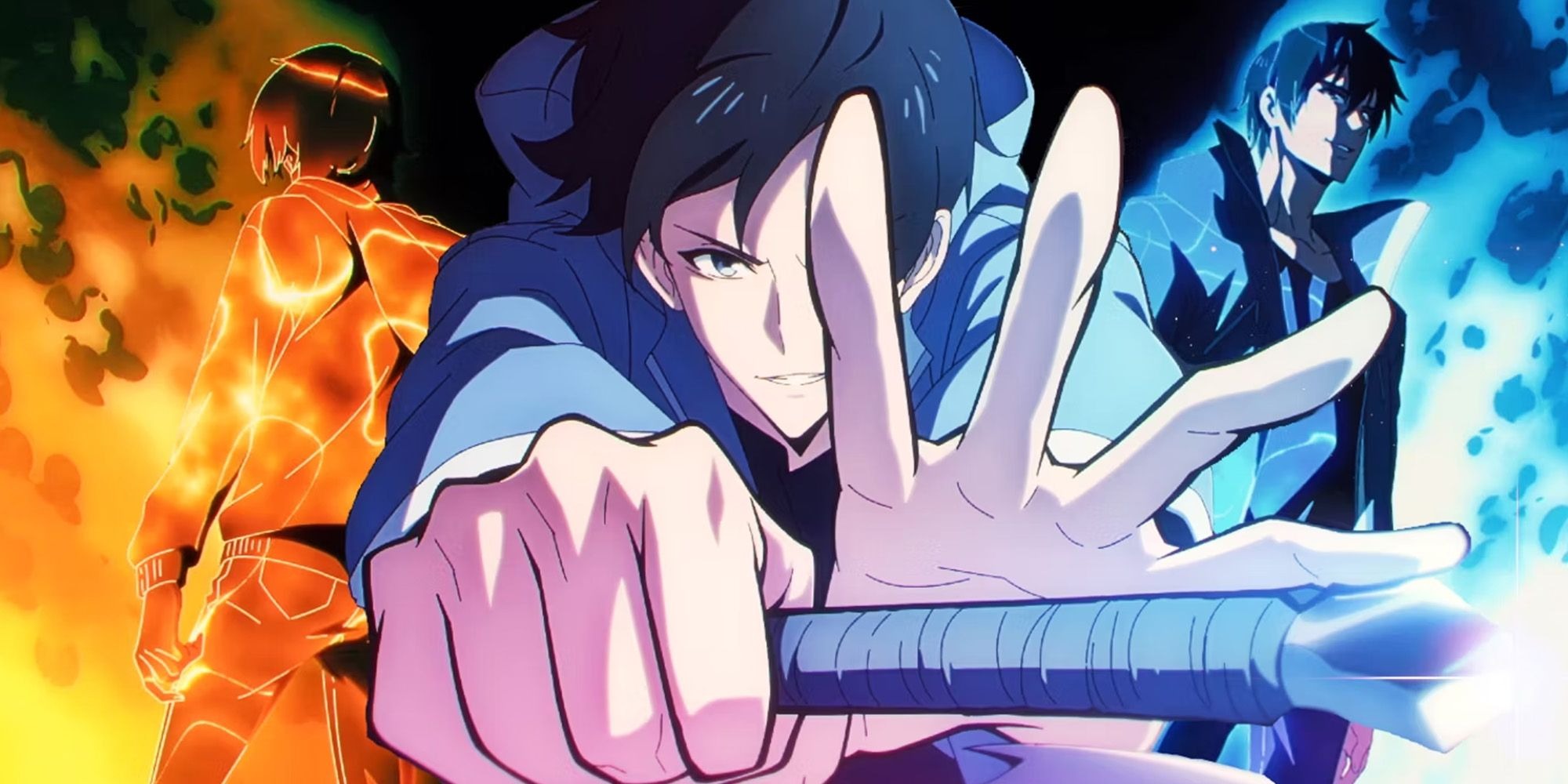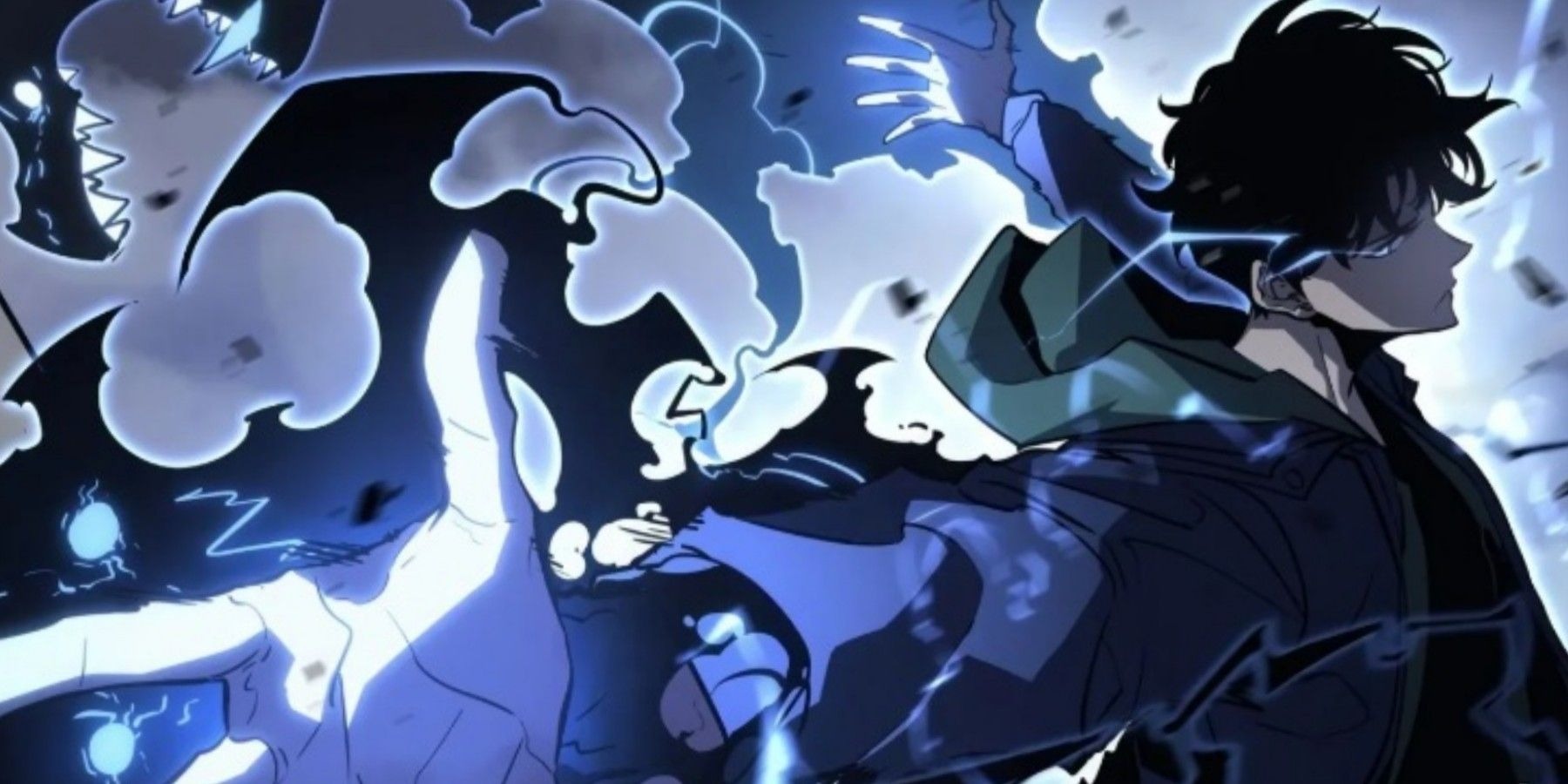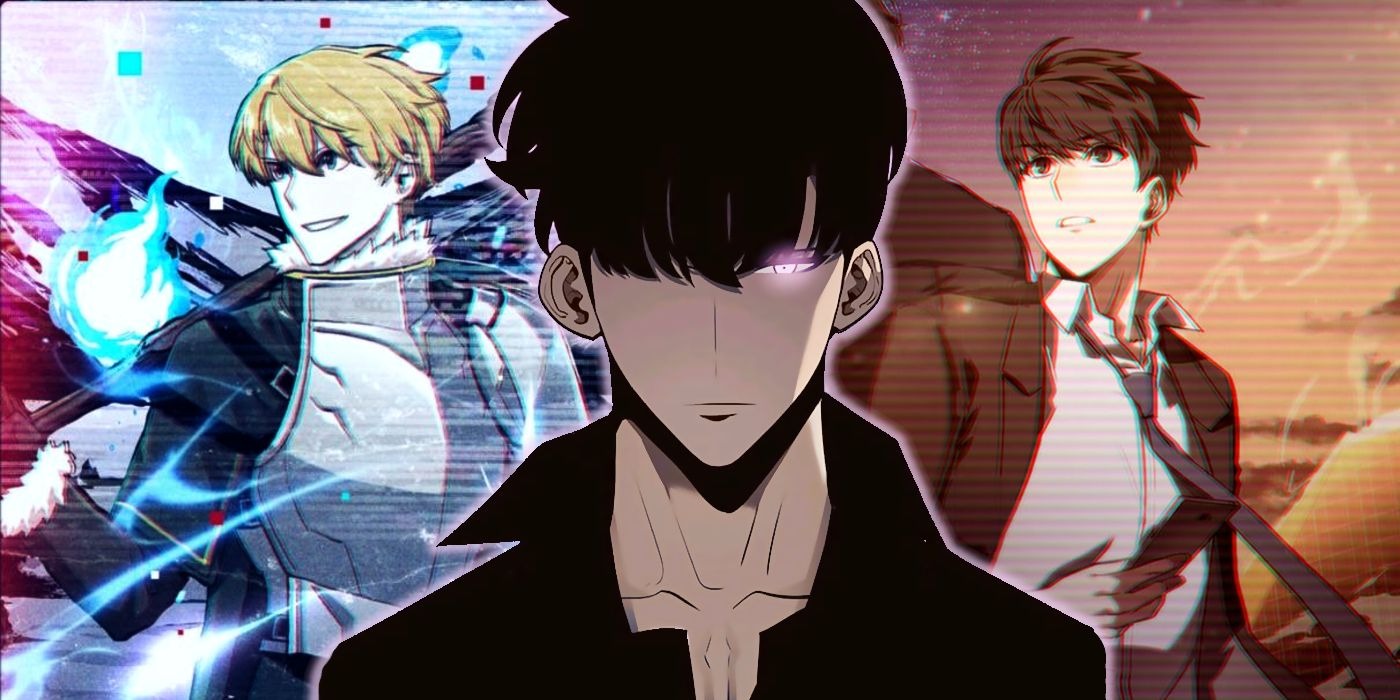Anime fans witnessed an explosive start to 2024, and among the standout releases, Solo Leveling made an immediate and lasting impact. Within days of its early January premiere, discussions were already circulating about whether it could be the best anime of the year.
Just a few weeks after its debut, the series reached record-breaking viewership numbers on Crunchyroll, securing its place as one of the most-watched shows in the platform’s history. Few anime have ever launched with such overwhelming success.

This makes it even more remarkable that this adaptation comes from a webtoon that had been around for nearly a decade. This raises an intriguing question: what made Solo Leveling resonate so strongly with audiences?
A Web Novel Turned Webtoon Turned Anime
Shunsuke Nakashige’s adaptation of Solo Leveling brings to life the original web novel written by Chugong, which was later turned into a webtoon illustrated by Jang Sung-Rak and Gi So-Ryeong. The series is set in a world where humanity faces an ongoing threat from formidable monsters.
To protect society, individuals with extraordinary abilities—known as hunters—take on the responsibility of defeating these creatures before they can breach their interdimensional dungeons and enter the human world.
From the Weakest Hunter to an Unstoppable Force
The hunters, however, vary greatly in strength and skill. Sung Jinwoo, the protagonist, carries the unfortunate title of “humanity’s weakest hunter” due to his inability to handle even the lowest-level monsters. His fate takes a dramatic turn when he acquires a rare ability that allows him to progressively enhance his powers.
By converting the experience he gains in battles into direct upgrades, he gains the potential to rise far beyond his former limitations. The more he fights, the stronger he becomes, setting the stage for an extraordinary transformation.
An Opening Theme Unlike Any Other
One of the defining aspects of Solo Leveling is its opening theme, which sets it apart from past anime introductions. This choice reflects the show’s effort to bring something fresh to the genre while maintaining its identity.
Solo Leveling Reinvents a Familiar Storyline – RPG Mechanics Meet an Urban Fantasy Setting
A strong storyline serves as the backbone of any successful anime. Without an engaging plot that draws viewers in, no amount of visual appeal or action sequences can sustain long-term interest. While Solo Leveling follows the classic “zero to hero” story, it manages to keep things fresh through an innovative approach to storytelling.
What sets it apart is its seamless incorporation of role-playing game (RPG) elements into a modern fantasy setting. The integration of RPG mechanics is not entirely new in manga or webtoons, but it is less commonly found in mainstream anime. Many isekai series have featured video game-inspired concepts, though they typically take place in fantastical, distant worlds.
Solo Leveling plays out in present-day Korea, making these mechanics feel more grounded. This approach doesn’t just serve as a gimmick to attract attention—it plays a fundamental role in making Jinwoo’s rapid growth feel plausible within the show’s world.
The RPG framework injects fresh energy into a premise that might not have stood out otherwise. By allowing Jinwoo to “level up” in a way that mirrors traditional gaming mechanics, the anime successfully engages viewers who are already familiar with these concepts.
This structured progression system, reminiscent of completing various challenges in a video game to gain strength over time, adds an extra layer of believability. The result is an engaging viewing experience that keeps audiences eager to see how powerful Jinwoo will become with each new episode.
Solo Leveling Appeals to a Wide Audience
The overwhelming success of Solo Leveling can also be attributed to its ability to attract diverse groups within the anime community. Genre-based preferences can often create divisions among anime fans, but this series manages to bridge those gaps.
Aleks Le, the voice actor for Jinwoo, acknowledged this during an interview with Screen Rant, emphasizing that Solo Leveling offers something enjoyable for both longtime anime fans and newcomers alike.
“It’s got everything somebody who’s both a fan of anime or new to anime would enjoy.” – Aleks Le
The series appeals to three major groups. First, some dedicated followers were already invested in the Solo Leveling web novel and webtoon. This established fanbase played a major role in building anticipation for the anime adaptation, helping it gain immediate traction upon release.
Second, fans of adventure fantasy anime found it hard to ignore, as the genre has produced some of the most well-loved anime titles over the years. Anyone with an interest in action-packed fantasy series would have been drawn to Solo Leveling from the outset.
The third and perhaps most unexpected audience includes gamers. The gaming community is known for its extensive knowledge of anime and manga, given the frequent crossover between these mediums. Many video games draw inspiration from anime, and vice versa, making Solo Leveling a natural attraction for gamers.
The anime’s numerous references to gaming concepts and progression systems only deepened this connection, ensuring a strong following among gaming enthusiasts.
Solo Leveling Benefited from the Rising Popularity of Manhwa
The expansion of manhwa beyond South Korea played a key role in Solo Leveling reaching a global audience. Unlike Japanese manga, which has long dominated the international market, manhwa remained relatively niche for much of its history. It was primarily consumed within South Korea, with limited exposure outside the country.
However, the growth of internet accessibility in the late 1990s made it easier for readers worldwide to explore manhwa. This development provided an alternative to Japanese manga and Western comics, leading to an increase in international interest.

As manhwa gained momentum, discussions about its potential to rival manga became more widespread. Even Solo Leveling’s creators have expressed their belief that Korean manhwa could surpass manga in popularity.
With the increasing enthusiasm surrounding manhwa, it was inevitable that anime fans would be eager to see a manhwa adaptation—especially one based on such a beloved title. Since its introduction in 2016, Solo Leveling has risen to prominence as one of the most cherished manhwa series.
For those deeply invested in Korean comics, watching the anime adaptation became an absolute necessity. Another example of a well-known anime based on a manhwa is Tower of God, which further demonstrates the growing influence of Korean webcomics in the anime industry.
Solo Leveling Delivered a High-Quality Anime Experience -Exceptional Production Values Met Audience Expectations
Beyond its compelling story and wide appeal, Solo Leveling thrived because it excelled in key areas that define great anime: action, visuals, and animation. Since the story revolves around Jinwoo fighting increasingly powerful monsters, the action sequences are a major draw, keeping viewers engaged with intense battles throughout.
A-1 Studios, the production company behind the anime, played a crucial role in elevating its visual appeal. The animation studio successfully translated the webtoon’s stunning artwork onto the screen, delivering a polished and dynamic viewing experience.
This attention to detail shines in the fight choreography and breathtaking backgrounds, adding depth and intensity to every scene. A combination of a well-crafted story, broad audience appeal, and a favorable anime climate helped Solo Leveling rise to prominence.
By ensuring strong production values alongside these factors, the series achieved extraordinary success during the winter anime season of 2024.


